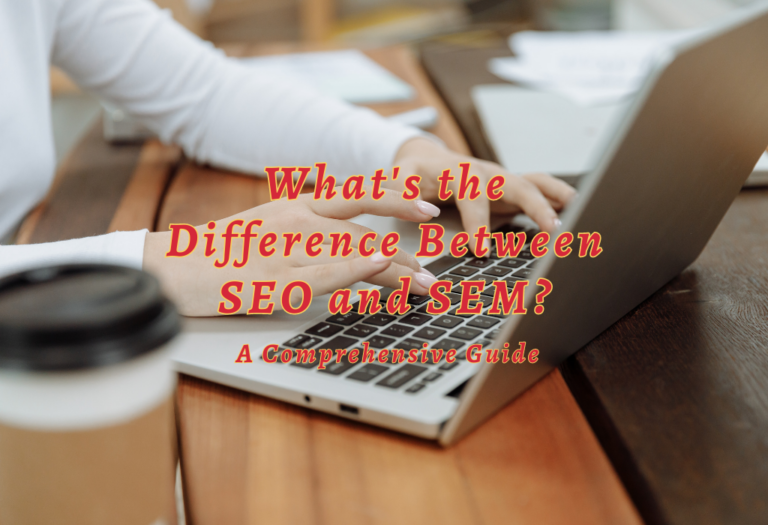Busting SEO Myths: Uncovering the Truth Behind SEO Misconceptions
SEO has been shrouded in mystery due to its ever-changing nature and lack of transparency from Google about how its algorithms work. This has led to many myths circulating online about what does or doesn’t affect rankings in SERPs.
However, with increasing efforts by Googlers like John Mueller, Gary Illyes, and Danny Sullivan to provide insights into how their algorithms work through various channels, including Twitter metaphors and Webmaster Hangouts, we are now seeing a much greater level of transparency coming out from them than ever before.
This shift towards openness means that we have better access than ever before to understand why certain pages rank higher than others in SERPs – allowing us as professionals to make more informed decisions when optimizing our sites for organic search traffic.
Staying abreast of industry developments is paramount if you don’t want to be left behind in the dust. Do your due diligence and research the latest algorithm updates from official blog posts released by Google or other search engines, read up on case studies conducted by reliable companies, and pick the brains of experienced digital marketing professionals who have faced similar issues.
This way, you can make sure that any advice you take onboard has been verified first-hand rather than taking a leap of faith without verifying its veracity.

The Dangers of SEO Myths
SEO misconceptions can lead us down an incorrect path regarding our website optimization strategies, costing us time and money without any real benefit gained – especially if we end up being penalized by the search engine for trying out these outdated techniques.
It also wastes our resources away from more effective tactics like creating high-quality content tailored towards user intent or focusing on technical aspects such as site speed and mobile friendliness, which have been proven to impact rankings positively, according to recent studies conducted by industry experts like Moz and Ahrefs.
Hereunder, we’ve discussed some misconceptions about Google and SEO and why they’re wrong.
Myth #1 SEO is Dead
SEO is dead, a myth that has been around for quite some time. The truth is SEO is far from over and continues to be an essential part of any successful digital marketing strategy.
Despite the frequent algorithm updates by search engines like Google, SEO remains one of the most effective ways to drive organic traffic to your website. One reason why this myth persists is that many people don’t understand how SEO works or what it entails.
They think all they need to do is throw up a few keywords on their site, and voila!
– instant success! Unfortunately, it doesn’t work like that; SEO requires careful planning and implementation to be effective.
Myth #2 SEO is a One-Time Thing
SEO is not a one-time thing. It’s an ongoing process that requires regular maintenance and refinement to ensure your website remains competitive in the ever-changing digital landscape.
Just like any other marketing strategy, SEO needs to be monitored and tweaked regularly if you want it to remain effective.
For example, search engine algorithms are constantly changing, so what worked for you last year may no longer be relevant today. If you don’t keep up with these changes, your rankings could suffer.
Additionally, new competitors can enter the market anytime, which means someone will constantly be vying for those top spots in the SERPs (Search Engine Results Pages).
So, if you want to stay ahead of the competition and maintain your position at the top of the rankings, SEO must become part of your ongoing marketing efforts.
Myth #3 Duplicate Content Causes Penalization
Duplicate content is one of the most common SEO myths that many people believe. Indeed, search engines don’t penalize you for having duplicate content, but it can still harm your organic rankings.
When a search engine finds multiple copies of the same page on your website, it divides authority between them and dilutes your overall ranking potential. Not only does this affect your visibility in SERPs, but it also reduces the number of backlinks to those pages since they compete for attention.
This means fewer links pointing to these pages, affecting their rankings. Additionally, the crawl budget is wasted on crawling identical content twice instead of indexing more important web pages on your site. So you’re essentially shooting yourself in the foot by not addressing any duplicate content issues you may have.
Myth #4 PPC Has No Seo Benefits
Many people believe that PPC has no SEO benefits, but this is a myth. In fact, when used correctly, PPC can be an effective tool for improving your website’s search engine rankings.
While it won’t directly improve your organic results, there are several indirect ways in which you can use PPC to boost your SEO efforts.
For example, using Google AdWords as a research tool can provide valuable data for optimizing your SEO strategy.
You can use it to conduct keyword research and analyze user intent and the buyer journey – all of which will help refine your approach and increase visibility on SERPs (search engine result pages). You can also leverage PPC campaigns to promote content such as blog posts or videos with embedded backlinks.
This helps build authority by increasing the number of links pointing back to your site from other sources, thus improving its relevance in the eyes of search engines like Google and Bing.
Myth #5 Google Ranks New Content
Though Google has long emphasized the importance of fresh content in its search engine rankings, this doesn’t means you should create new content every time. Instead, you should keep on updating your content with new research points.
It’s no secret that Google loves fresh content; it helps keep their search results relevant and up-to-date for users. But why does Google rank new content so highly? The answer lies in how Google views websites with regularly updated information.
Websites that are constantly publishing new and exciting material are seen as more active than those that don’t update their pages often. This activity signals to Google that the website is still alive and kicking, which makes them more likely to be featured prominently in search results.
If you want success with SEO, it is important to focus on creating valuable content first. This should be done by providing helpful resources that people actually need and want. Additionally, promote these resources through social media channels and guest blogging opportunities.
Building relationships with influencers and bloggers within relevant industries and niches can also help in the long run. Finally, work towards earning high-quality natural backlinks over time rather than taking shortcuts which usually end up being counterproductive anyway.
Myth #6 The More Backlinks, the Better
This simply isn’t true in 2023. Quality matters more than quantity when it comes to backlinks, and Google considers this when measuring your authority on the web. Hundreds of low-authority or spammy websites won’t give you as much value as a single link from a high-authority website would provide.
It’s also worth noting that not all links are created equal; some links may be considered “do follow” while others may be regarded as “nofollow,” which means they don’t pass any link juice (ranking power) to your website and therefore aren’t taken into consideration by search engines like Google when ranking sites in their index.
So, if you’re looking to get more organic traffic through higher rankings, focus on getting quality “do follow” backlinks instead of just going after any link out there without considering its source or relevance to your content/ website/ topic/ niche, etc.
Myth #7 You Don’t Need to Conduct Keyword Research
Thinking of a relevant keyword for your page is not enough for SEO. Without conducting keyword research, you won’t have the data necessary to back up that the chosen keyword is effective and will drive traffic to your page.
Additionally, if you don’t conduct any research, you may only rank for one keyword, which limits the visibility of your page in search engine results pages (SERPs). To ensure success with SEO, you must understand why and how keywords are used and how they can benefit your content strategy and website ranking efforts.
Here’s a short brief of how you can Conduct Keyword Research_
There are several tools available online, such as Google AdWords or Moz Pro, that make researching keywords easier than ever before. These tools allow users to find out what people are searching for on the web by entering a seed term into their respective platforms; this provides insight into related words and phrases commonly used in searches across different industries or topics related to yours.
Myth #8 The More You Use Keywords on a Page, the Better it Will Rank
Google’s algorithm considers many factors when determining how relevant a page is for a particular query, including whether or not that page has been manipulated through keyword stuffing techniques. If Google detects this manipulation on your site, they may penalize you by lowering your rankings or even removing you from their index altogether.
Additionally, if users come across pages that are filled with irrelevant keywords simply because they were stuffed in there just for ranking purposes rather than providing value-added content, then they won’t find what they are looking for and will likely leave quickly without engaging further with other pages on your site.
The best way to avoid keyword stuffing penalties from Google is by writing natural-sounding content that flows well without having too much repetition throughout it – focus more on providing quality information about topics related to what people are searching for instead of trying to force specific terms into every sentence unnecessarily so that you can rank better for those terms (this also helps keep readers engaged longer).
Additionally, use synonyms where appropriate, as well as internal links within each post/ page that point back at other pieces related to the topic being discussed; these strategies help create more natural language while still allowing you to target multiple keyphrases associated with each piece of content effectively without resorting to bad practices like keyword stuffing.
Myth #9 If You Don’t Get the First Position, Your Seo is Failing
This misunderstanding occurs when people expect their website to get into that coveted first spot on search engine results pages (SERPs) whenever they target a keyword phrase. While having a top keyword rank is an important goal of any SEO campaign, it’s not always achievable due to competition levels or simply needing more time for optimization efforts.
Additionally, sometimes competitors may have better content which makes them rank higher than you – so reoptimizing your content could help here too.
How Can You Fix It?
If you find yourself stuck in lower positions despite optimizing your site and continually putting out top-notch content, there are a few ways you can go about enhancing your ranking:
All these tactics will get you better visibility in SERPs over time.
Myth #10 Domain age is a Ranking Factor
Domain age is often cited as a critical factor in determining how well a website ranks on search engine results pages (SERPs). But the truth is, it’s not really an SEO ranking factor.
Indeed, older websites rank better, but this is not due to their age.
This is because it had more time to build up its backlinks and content compared to a website built six to eight months ago.
In July 2019, when a tweet stated that domain age was one of “200 signals of ranking”, John Mueller, Google’s Webmaster Trends Analyst, replied, “No, domain age helps nothing.”
FAQs About SEO Myths: SEO Misconceptions That Aren’t True
Conclusion
It is clear that there are many SEO myths and misconceptions out there, but with the proper knowledge, you can separate fact from fiction. The key to successful SEO lies in understanding what works and what doesn’t when optimizing your website for search engines.
By debunking these common SEO myths, we hope to have given you a better understanding of how to approach your own SEO strategy and avoid making costly mistakes.
Remember: when it comes to “seo myths: seo misconceptions that aren’t true,” knowledge is power!
Are you feeling overwhelmed by the ever-changing landscape of SEO? Don’t worry; we’ve got your back!
We’ll help you separate fact from fiction and debunk common misconceptions about search engine optimization. With our expertise in website architecture, usability, and user experience (UX), let us guide you through the process so your business can reach its full potential online. Contact us today to get started on optimizing your site for success!





